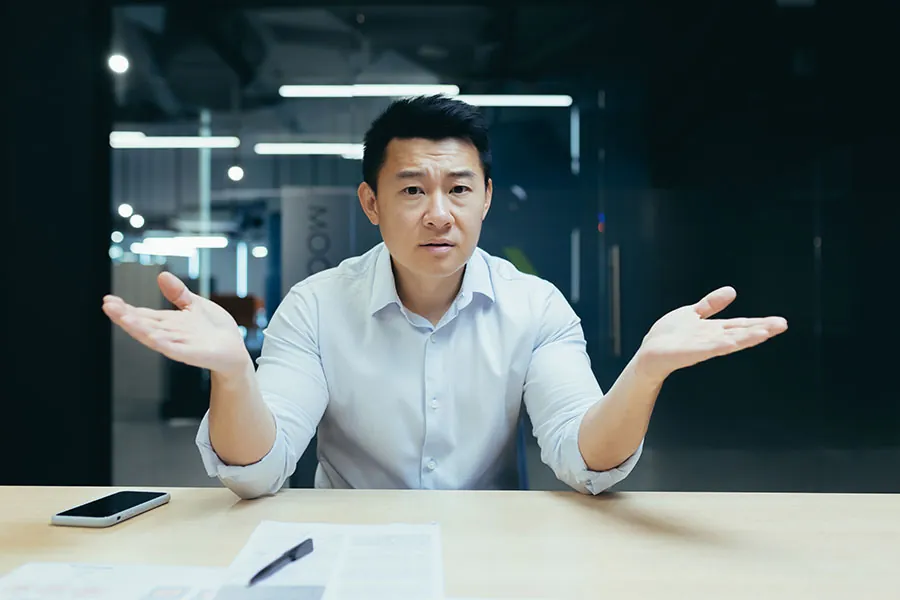Is AI Generated Content Helpful for Your Website Ranking?


Since we started using AI (LLMs) in late 2023 they have been improving in functionality and usefulness and most companies have been looking at how to use AI to help them with their digital marketing as well as other areas in their businesses. This has led to a flood of AI created blog posts, social media posts and images that for a short time created a boost in ranking and visibility to customers.
Table of Contents
This happened partly through laziness on the part of marketing agencies capitalizing on the AI craze. Another reason is that for most companies, creating high quality content for their website and social media channels is not something that they are good at, so understandably they turned to Ai for assistance.
In the last few years however, Google has been focusing on ranking websites well if they produce high quality regular content, but now with millions of low quality but very long and detailed AI blog posts flooding the internet, Google has taken action to fix this issue. Since May this year, AI created blog posts that contain no original content have been demoted in search rankings.
This has had a huge impact on many companies, so in this article I want to give you a simple guide on what the current advice is regarding AI content and how you can still make sure that you are creating content that will not only rank highly but also attract new inquiries.
Google’s Stance on AI-Generated Content
At the Google Developer website, it offers some very clear guidelines on what type of AI content is a problem and what it views as high quality content for users:
Google says that “AI can be particularly useful when researching a topic, and to add structure to original content.” So if you are struggling to find information for a topic, using AI to help you is fine, but always remember to check your sources carefully as AI models sometimes hallucinate and make up sources that do not exist.
What you should not do is to use AI to create a high volume of content without adding value for users is not acceptable and will likely violate Google’s Spam Policy on Scaled Content Abuse.
In May 2025 Google’s latest algorithm update implemented these standards and many companies started to notice that their previously ranking content was now disappearing from search results pages and their sites were losing traffic.
In May I attended a marketing conference in Singapore where “experts” were still talking about how wonderful it was to create large numbers of landing pages for their customer’s websites using AI generated content. That strategy will not be working well for them anymore.
So if your website or blog has a lot of AI generated content what can you do now? What are the guidelines for creating content that Google will actually value and will help you to attract more inquiries?
Google Says Create Helpful, People-First Content for Your Website
Google did not say that AI content was bad, it said that large volume AI content would violate its spam policy and that using AI to create content without adding additional value was also unacceptable. So what can you do now in July 2025 to create the right type of content for your website or blog?
Google’s “helpful, reliable, people-first” principle is the correct way to think about any content for your website.Google calls this its E-E-A-T framework (Experience, Expertise, Authoritativeness, and Trustworthiness.) If your content demonstrates all of these things then is it more likely to rank highly in search engine results pages and therefore more likely to keep customers interested so that they send you an inquiry.
There are quite a few items in the guidelines from Google so it would be best to read through them to get a clear idea on how Google looks at your content, you can find the guidelines here in the section titled “Content and quality questions”. If you read through the list it makes a lot of sense and Google is really trying to answer the simple question which is whether it is worth someone’s time to read your content or not.
How can I know what is useful content for my customers?
Your customers are often the best source of content planning ideas for your website and social media channels. Listen to what your customers ask you and review sales emails to find topics for useful content. It is a great way to learn what they know and also what they are confused or concerned about. Answering their questions clearly is an effective strategy to help customers engage more with your content, trust your company and hopefully send you an inquiry.
As an example, I am writing this post because a customer this week in Taiwan asked me this question:
“What is the difference for SEO if the content is AI written?”
I hope that this article has answered this question for them.
Key Points to Remember about AI Created Content
The key points that you need to take away from the article are these:
- Do not use 100% AI written content on your website or blog Google will discover it and not rank it highly.
- Keep up to date with Google advice by checking on the Google Developer blog.
- Answer common customer questions and read their emails to find topics for website content
At GlobalSense our international team of marketing experts takes the time to understand what customers need and create the content that will attract new customers to their websites. We have an extensive marketing blog which contains a lot of useful information that is written for YOU to help you make better marketing decisions for your company, whether it is for website design, search engine optimization or for integrated marketing. We also have some useful AI marketing tools and strategies that will help you business appear more easily in AI search engines.
If you would like to find out more about how we can help you then please give us a call or even try out our Free SEO audit for Taiwan Manufacturers to find out how your company is performing in international search results.
